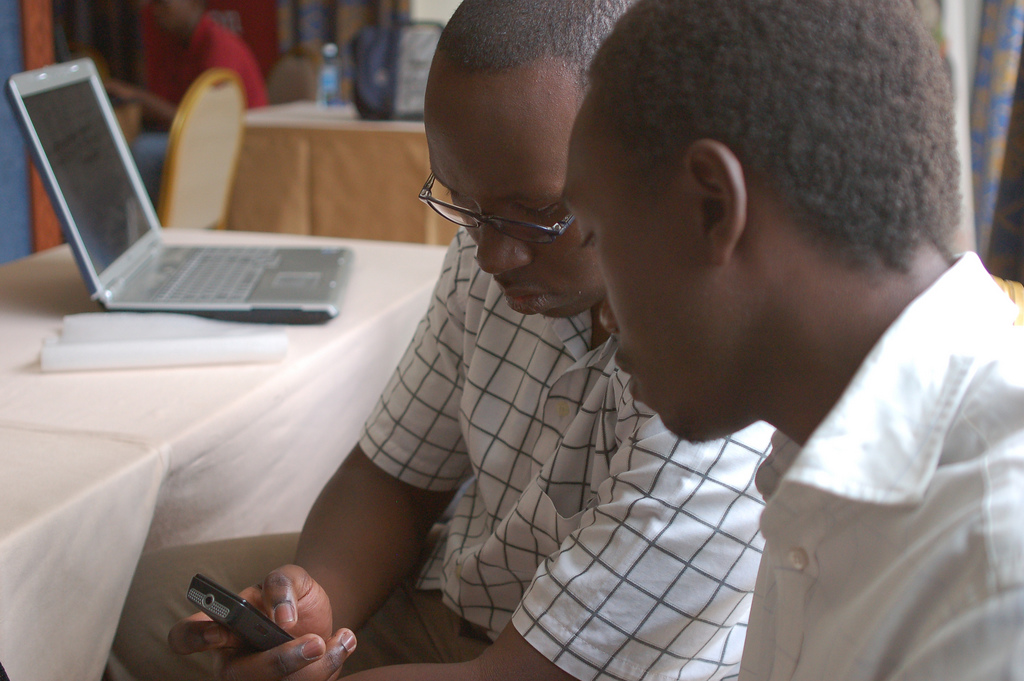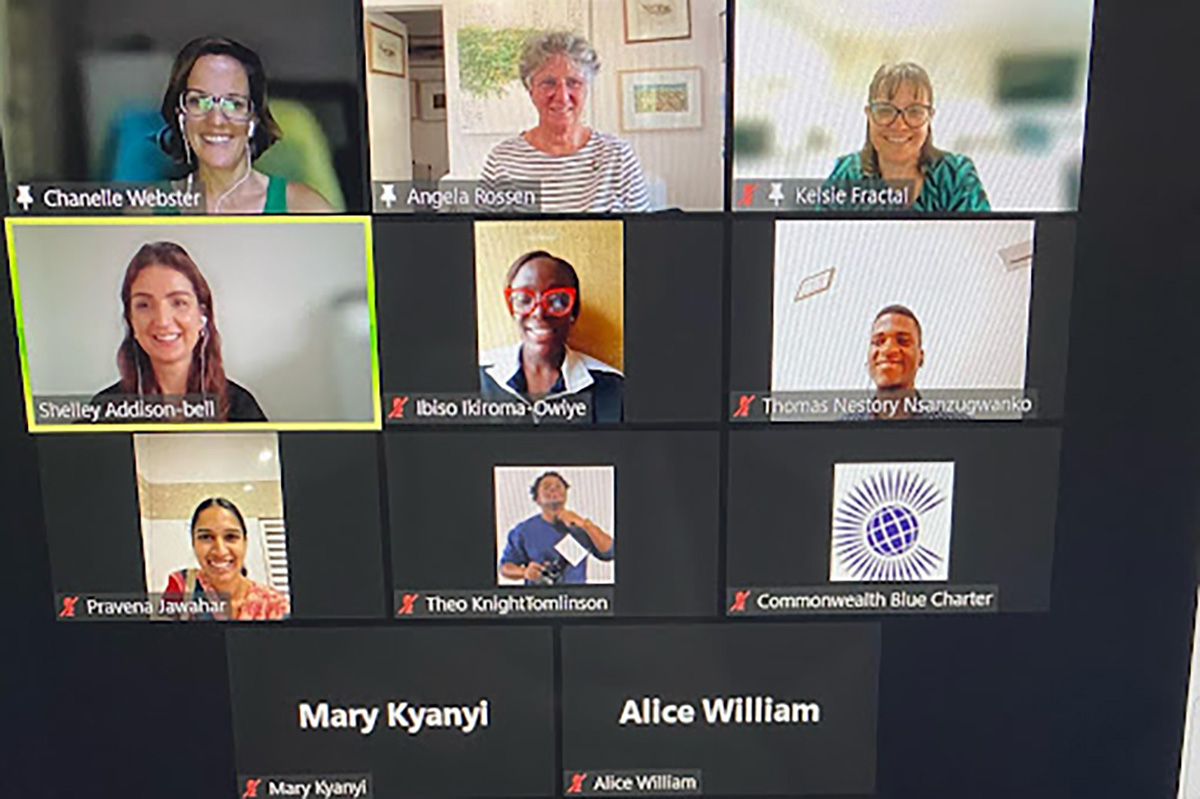“Sustaining a knowledge economy for the Commonwealth”
November 16th, 2015 Young people play an integral role in advancing development, democracy and peace. At the 10th Commonwealth Youth Forum in Malta, 21-25 November, over 400 youth leaders will discuss the challenges and opportunities facing young people, and devise relevant policy solutions through four main agendas – economic, environmental, social and political. The theme of the Forum is ‘Adding Global Value… #Whatnext?’ Carole Nyemeck, 22, a Commonwealth Correspondent from Yaounde in Cameroon, examines growth in the knowledge economy.
Young people play an integral role in advancing development, democracy and peace. At the 10th Commonwealth Youth Forum in Malta, 21-25 November, over 400 youth leaders will discuss the challenges and opportunities facing young people, and devise relevant policy solutions through four main agendas – economic, environmental, social and political. The theme of the Forum is ‘Adding Global Value… #Whatnext?’ Carole Nyemeck, 22, a Commonwealth Correspondent from Yaounde in Cameroon, examines growth in the knowledge economy.
The decline of capitalism since the economic and financial crisis of 2008, followed by the rise of globalisation, brought about a free and unlimited access to knowledge through the information, communication and technology revolution. The organisational shift went from emphasis on capital and labour assets management to knowledge assets management.
Consequently, the world has gone from an industrial to a knowledge-based economy led by innovation in science and technology. Hence, the Commonwealth — like any other organisation worldwide — is facing a crucial issue: How to fully include science and technology as integral part of the process of advancing economic growth?
The purpose of such a delicate endeavour is no longer to establish the relationship between science and technology and economic growth. The World Bank has done substantial work through econometric tests that revealed a statistically significant relationship between the level of knowledge accumulation and economic growth. Those findings led the World Bank Institute to conceive its Knowledge for Development (K4D) program.
K4D uses an approach called Knowledge Assessment Methodology (KAM) as a means to help countries in their transition to the knowledge economy. It is developed around four pillars: Economic Incentive and Institutional Regime (EIR), Innovation and Technological Adoption, Education and Training, and Information and Communications Technologies (ICT) infrastructure. When those four are aggregated and normalized, the Knowledge Economy Index (KEI) is obtained. It represents the overall level of development in the knowledge economy. Using KEI scores, the World Bank demonstrated that higher levels of knowledge in a society lead to higher levels of economic growth. Moreover, a one-unit improvement in the KEI leads to an increase of 0.46 percentage point in economic growth.
Other global stakeholders have also successfully traced the link between science and technology and economic growth. The World Economic Forum (WEF), for instance, has established a methodology to measure the factors, policies and institutions that determine a country’s productivity and thus its competitiveness and the level of prosperity it can attain. The state of the country’s public institutions and infrastructure (including in ICT), the quality of the macroeconomic environment, and the level of technological readiness are key elements identified by the Growth Competitiveness Index.
On the same wavelength, the Industrial Development Report of the United Nations Industrial Development Organization (UNIDO 2005) emphasizes developing countries’ capacity to catch up with developed ones. Its measures knowledge, inward openness, the financial system, the governance system, and the political structure.
Considering those preceding works, the aim of this article is then to identify the challenges that still lie between the science and technology revolution and economic growth in Commonwealth countries, so as to create a bridge that will close the gap and help them advance as knowledge economies. Using KAM’s data and based on their 2012 KEI (most recent available), we will divide Commonwealth countries into four World Bank classifications: scientifically and technologically advanced, proficient, developing, and lagging countries.
With KEi scores of 8 to 10 we find five Commonwealth countries are scientifically and technologically (S&T) advanced: New Zealand (8.97), Canada (8.92), Australia (8.88), United Kingdom (8.76), and Singapore (8.26).
Between the 6 to 8 KEI score, Malta (7.88), Cyprus (7.56) Barbados (7.18), and Malaysia (6.10) are S&T proficient.
Between the 5 to 6 KEI score, Trinidad and Tobago (5.91), Jamaica (5.65), Dominica (5.56), Mauritius (5.52), and South Africa (5.21) are rated as S&T developing.
With 0 to 5 KEI scores, the five countries most seriously S&T lagging are: Tanzania (1.79), Mozambique (1.76), Cameroon (1.69), Bangladesh (1.49), and Sierra Leone (0.97).
In conclusion, among the 35 Commonwealth countries identified by the KAM, 21 are S&T lagging. To this category we can add Seychelles, two countries from Asia, eight from the Pacific, and seven from the Caribbean and Americas that are not yet considered as knowledge economies by the KAM.
Further, from 1995 to 2012, the countries rated as most seriously S&T lagging observed some sort of regression or instability on the measures reviewed, meaning that they are still struggling to consolidate and maintain efforts towards progress as fuller knowledge economies.
Also, from 2000 to 2012, 19 Commonwealth countries regressed in EIR index, 17 regressed in Education index, 27 regressed in ICT index, and 17 regressed in Innovation index. From this we can infer that though the four pillars are all fundamental and intermingled, Commonwealth countries need to put extra emphasis on Information and Communications Technologies infrastructure.
In other words, they must improve access to energy supply, along with telephones, computers and Internet users per 1000 people. To achieve that, Commonwealth policy makers and leaders should make strong commitments towards cooperation and investments in capacity-building.
References:
- The K4D program of the World Bank and its KAM methodology can be found on www.worldbank.org/kam.
- For access to world countries’ KEI data and statistics from 1995 to 2012, go to http://knoema.com/WBKEI2013/knowledge-economy-index-world-bank-2012
- “Strategic approaches to S&T in development”. World Bank paper.
- OECD (Organization for Economic Co-operation and Development) report. 1996. “The Knowledge-Based Economy”. Paris.
- Policy Brief. September 2000. “Science, Technology and Innovation in the New Economy”.
- UNIDO (United Nations Industrial Development Office). 2005. “Industrial Development
- Report 2005: Capacity Building for Catching-up—Historical, Empirical and Policy Dimensions”. Vienna.
- Derek H. C. Chen and Carl J. Dahlman. October 19, 2005. “The knowledge economy, the KAM methodology and World Bank operations”. World Bank Institute (WBI) KAM paper.
- WBI Development Studies. 2007. “Building knowledge economies: Advanced strategies for development”.
- “Knowledge Economy Index (KEI) 2012 rankings”. World Bank report 2012.
- World Economic Forum (WEF). 2014. “The Global Competitiveness Report 2014-2015”. Geneva.
photo credit: 2 members of the Ushahidi Mobile Team via photopin (license)
…………………………………………………………………………………………………………………
About me: I am a student studying in Yaoundé, the political capital of the country. I am also a member of Cameroonian Student Achievers Club at the Yaoundé US Embassy, and wish to further my education in the United States.
I have always loved the media universe and its components of radio, television, newspapers and internet. However, my first professional encounter with this world came recently, when I began volunteering at Radio Maria Yaoundé.
…………………………………………………………………………………………………………………
Opinions expressed in this article are those of the author and do not necessarily represent the views of the Commonwealth Youth Programme. Articles are published in a spirit of dialogue, respect and understanding. If you disagree, why not submit a response?
To learn more about becoming a Commonwealth Correspondent please visit: http://www.yourcommonwealth.org/submit-articles/commonwealthcorrespondents/
…………………………………………………………………………………………………………………






